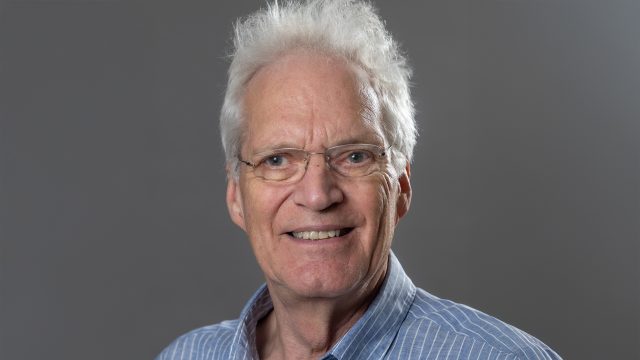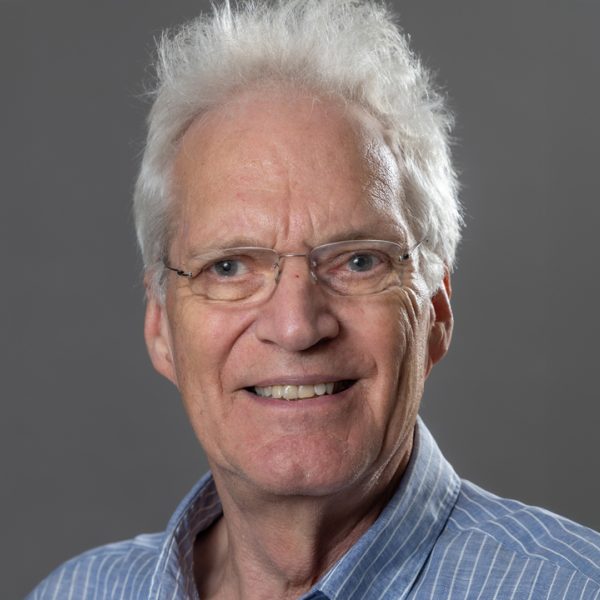
Our Focus
The most formidable obstacle in the treatment of cancer is the emergence of therapy resistance. Combination therapies can help fight therapy resistance, but with an arsenal of over 1000 cancer drugs in clinical development, the number of possible combinations seems nearly endless. In my laboratory we employ functional genetic screens to find powerful combinations of cancer drugs by exploiting the concept of "synthetic lethality". Using CRISPR/Cas9-based genetic screens focused on druggable gene families, we search for genes whose inactivation is particularly synergistic with clinically-relevant cancer drugs. Such screens can identify drug combinations that are far more powerful than the sum of the two single agents. We aim to understand the molecular rationale for the observed synergy between two cancer drugs. Once we have insight into the molecular mechanism, we aim to bring such rationally-designed combinations to the cancer clinic through collaboration with clinicians in our comprehensive cancer centre.
About René Bernards

René Bernards
My research
René Bernards studied adenovirus transformation for his PhD research with Alex van der Eb in Leiden. He joined the laboratory of Robert Weinberg at the Whitehead Institute in Cambridge, USA for his postdoctoral training. He was appointed assistant professor at the Massachusetts General Hospital Cancer Center in 1988. In 1992 he joined the Netherlands Cancer Institute in Amsterdam. In 1994 he was also appointed part time professor of molecular carcinogenesis at Utrecht University, The Netherlands.
During his PhD research, he showed that the difference between oncogenic and non-oncogenic adenoviruses was primarily due to their differential ability to switch off the expression of MHC class I antigens, allowing evasion of T cell immune responses. During his postdoctoral work, he showed that downregulation of MHC class I antigens is also a property of the MYCN oncoprotein and, in collaboration with Stephen Friend, isolated the first tumor suppressor gene, RB1.
After returning to Amsterdam in 1992, his major scientific accomplishments include the development of MammaPrint, the first molecular diagnostic test for personalized treatment of breast cancer that has been used clinically since 2004 to select patients for adjuvant therapy. Recently, MammaPrint was validated in a large phase III clinical study, which demonstrated that over 250,000 women in the EU and US that are treated with chemotherapy annually can safely forego this toxic treatment without loss of survival benefit.
His laboratory also developed the first shRNA vector for gene silencing in mammalian cells and used this vector to create the first genome-scale library of shRNA vectors, enabling genome-wide loss of function genetic screens in mammalian cells. His laboratory has used this vector collection to identify the PI3K pathway as a major determinant of resistance to herceptin in breast cancer and to identify the CYLD tumor suppressor gene as a regulator of NF-kB signaling, which suggested a strategy to treat cylindromatosis. His laboratory also used genetic screens to identify a number of particularly powerful drug combinations for the treatment of cancer, based on the concept of synthetic lethality. This work identified the combination of a BRAF inhibitor and an EGFR inhibitor as effective for the treatment of BRAF mutant colon cancer, a combination that was FDA and EMA approved in 2020. There are currently multiple clinical trials ongoing that test the efficacy of the combination therapies suggested by genetic screens from his laboratory.
He has co-founded four companies: Prolifix (developed belinostat for treatment of peripheral T cell lymphoma), Agendia (developed MammaPrint for breast cancer diagnosis), Qameleon Therapeutics (Qamelostat for treatment of BRAF inhibitor-resistant melanoma) and Oncosence (pro senescence therapy for cancer).
Awards
- 2022: Princess Takamatsu Memorial Lectureship, AACR.
- 2020: International member, National Academy of Sciences (USA).
- 2019: International Honorary Member, American Academy of Arts and Sciences.
- 2018: Fellow of the AACR Academy, class of 2018.
- 2013: Academy Professor Prize, Royal Netherlands Academy of Arts and Sciences.
- 2012: Queen Wilhelmina Research Prize, Dutch Cancer Society.
- 2011: Scrip Best Partnership Alliance Award for colorectal cancer collaboration with AstraZeneca and Agendia.
- 2009: Fellow, European Academy of Cancer Sciences.
- 2007: ESMO Lifetime Achievement Award in Translational Research in Breast Cancer.
- 2007: Member, Royal Netherlands Academy of Arts and Sciences
- 2005: Ernst W. Bertner Award for Cancer Research, M.D. Anderson Cancer Center.
- 2005: Spinoza award, Netherlands Organization for Scientific Research.
- 2005: Member, Academia Europea.
- 2005: Pezcoller Foundation-FECS Recognition for Contribution to Oncology.
- 2004: Josephine Nefkens award, Erasmus University, Rotterdam.
- 1992: Pionier Award, Netherlands Organization for Scientific Research.
- 1989: Searle Scholarship award.
- 1988: Edward Mallinckrodt Foundation award.
- 1985: Constantijn and Christiaan Huygens Fellowship, Netherlands Organization for Scientific Research.
Key publications
- Prahallad, A., Sun, C., Huang, S., Di Nicolantonio, F., Salazar, R., Zecchin, D., ... & Bernards, R. (2012). Unresponsiveness of colon cancer to BRAF (V600E) inhibition through feedback activation of EGFR. Nature, 483(7388), 100.
- Mainardi, S., Mulero-Sánchez, A., Prahallad, A., Germano, G., Bosma, A., Villanueva, A., Bardelli, A. and Bernards, R. (2018). PTPN11 inhibition impairs the growth of KRAS mutant Non-Small Cell Lung Cancer in vivo and sensitizes to MEK inhibition. Nature Med. 24, 961-967.
- Wang, L., Leite de Oliveira, R., Huijberts, S., Bosdriesz, E., Pencheva, N., Brunen, D., Bosma, A., Song, J-Y., Zevenhoven, J., de Vries, T., Horlings, H., Nuijen, B., Beijnen, J.H., Schellens, J.H.M. and Bernards, R. (2018). An acquired vulnerability of drug resistant melanoma with therapeutic potential. Cell, 173, 1413-1425.
- Wang, C., Vegna, S., Jin, H., Lieftink, C., Benedict, B., Cor Lieftink, C., Ramirez, C., Leite de Oliveira, R., Morris, B., Gadiot, J., du Chatinier, A., Wang, L., Gao, D., Evers, B., Jin, G., Xue, Z., Schepers, A., Jochems, F., Mulero Sanchez, A., Mainardi, S., te Riele, H., Beijersbergen, R.L., Qin, W., Akkari, L., and Bernards, R. (2019). Inducing and exploiting vulnerabilities for the treatment of liver cancer. Nature 574, 268–272.
- Jin, H., Shi, Y., Lv, Y., Yuan, S., Ramirez, C.F.A., Lieftink, C., Wang, L., Wang, S., Wang, C., Henrique Dias, M., Jochems, F., Yang, Y., Bosma, A., Hijmans, E. M., de Groot, M.H.P., Cui, D., Zhou, Y., Ling, J., Wang, H., Guo, Y., Zheng, X., Isima, N., Wu, H., Sun, C., Beijersbergen, R.L., Akkari, L., Zhou, W., Zhai, B., Qin, W., and Bernards, R. (2021). EGFR activation limits response of liver cancer to lenvatinib. Nature 595, 730–734.
My Research
René Bernards studied adenovirus transformation for his PhD research with Alex van der Eb in Leiden. He joined the laboratory of Robert Weinberg at the Whitehead Institute in Cambridge, USA for his postdoctoral training. He was appointed assistant professor at the Massachusetts General Hospital Cancer Center in 1988. In 1992 he joined the Netherlands Cancer Institute in Amsterdam. In 1994 he was also appointed part time professor of molecular carcinogenesis at Utrecht University, The Netherlands.
During his PhD research, he showed that the difference between oncogenic and non-oncogenic adenoviruses was primarily due to their differential ability to switch off the expression of MHC class I antigens, allowing evasion of T cell immune responses. During his postdoctoral work, he showed that downregulation of MHC class I antigens is also a property of the MYCN oncoprotein and, in collaboration with Stephen Friend, isolated the first tumor suppressor gene, RB1.
After returning to Amsterdam in 1992, his major scientific accomplishments include the development of MammaPrint, the first molecular diagnostic test for personalized treatment of breast cancer that has been used clinically since 2004 to select patients for adjuvant therapy. Recently, MammaPrint was validated in a large phase III clinical study, which demonstrated that over 250,000 women in the EU and US that are treated with chemotherapy annually can safely forego this toxic treatment without loss of survival benefit.
His laboratory also developed the first shRNA vector for gene silencing in mammalian cells and used this vector to create the first genome-scale library of shRNA vectors, enabling genome-wide loss of function genetic screens in mammalian cells. His laboratory has used this vector collection to identify the PI3K pathway as a major determinant of resistance to herceptin in breast cancer and to identify the CYLD tumor suppressor gene as a regulator of NF-kB signaling, which suggested a strategy to treat cylindromatosis. His laboratory also used genetic screens to identify a number of particularly powerful drug combinations for the treatment of cancer, based on the concept of synthetic lethality. This work identified the combination of a BRAF inhibitor and an EGFR inhibitor as effective for the treatment of BRAF mutant colon cancer, a combination that was FDA and EMA approved in 2020. There are currently multiple clinical trials ongoing that test the efficacy of the combination therapies suggested by genetic screens from his laboratory.
He has co-founded four companies: Prolifix (developed belinostat for treatment of peripheral T cell lymphoma), Agendia (developed MammaPrint for breast cancer diagnosis), Qameleon Therapeutics (Qamelostat for treatment of BRAF inhibitor-resistant melanoma) and Oncosence (pro senescence therapy for cancer).
Awards
2022: Princess Takamatsu Memorial Lectureship, AACR.
2020: International member, National Academy of Sciences (USA).
2019: International Honorary Member, American Academy of Arts and Sciences.
2018: Fellow of the AACR Academy, class of 2018.
2013: Academy Professor Prize, Royal Netherlands Academy of Arts and Sciences.
2012: Queen Wilhelmina Research Prize, Dutch Cancer Society.
2011: Scrip Best Partnership Alliance Award for colorectal cancer collaboration with AstraZeneca and Agendia.
2009: Fellow, European Academy of Cancer Sciences.
2007: ESMO Lifetime Achievement Award in Translational Research in Breast Cancer.
2007: Member, Royal Netherlands Academy of Arts and Sciences
2005: Ernst W. Bertner Award for Cancer Research, M.D. Anderson Cancer Center.
2005: Spinoza award, Netherlands Organization for Scientific Research.
2005: Member, Academia Europea.
2005: Pezcoller Foundation-FECS Recognition for Contribution to Oncology.
2004: Josephine Nefkens award, Erasmus University, Rotterdam.
1992: Pionier Award, Netherlands Organization for Scientific Research.
1989: Searle Scholarship award.
1988: Edward Mallinckrodt Foundation award.
1985: Constantijn and Christiaan Huygens Fellowship, Netherlands Organization for Scientific Research.
Key Publications
Prahallad, A., Sun, C., Huang, S., Di Nicolantonio, F., Salazar, R., Zecchin, D., ... & Bernards, R. (2012). Unresponsiveness of colon cancer to BRAF (V600E) inhibition through feedback activation of EGFR. Nature, 483(7388), 100.
Mainardi, S., Mulero-Sánchez, A., Prahallad, A., Germano, G., Bosma, A., Villanueva, A., Bardelli, A. and Bernards, R. (2018). PTPN11 inhibition impairs the growth of KRAS mutant Non-Small Cell Lung Cancer in vivo and sensitizes to MEK inhibition. Nature Med. 24, 961-967.
Wang, L., Leite de Oliveira, R., Huijberts, S., Bosdriesz, E., Pencheva, N., Brunen, D., Bosma, A., Song, J-Y., Zevenhoven, J., de Vries, T., Horlings, H., Nuijen, B., Beijnen, J.H., Schellens, J.H.M. and Bernards, R. (2018). An acquired vulnerability of drug resistant melanoma with therapeutic potential. Cell, 173, 1413-1425.
Wang, C., Vegna, S., Jin, H., Lieftink, C., Benedict, B., Cor Lieftink, C., Ramirez, C., Leite de Oliveira, R., Morris, B., Gadiot, J., du Chatinier, A., Wang, L., Gao, D., Evers, B., Jin, G., Xue, Z., Schepers, A., Jochems, F., Mulero Sanchez, A., Mainardi, S., te Riele, H., Beijersbergen, R.L., Qin, W., Akkari, L., and Bernards, R. (2019). Inducing and exploiting vulnerabilities for the treatment of liver cancer. Nature 574, 268–272.
Jin, H., Shi, Y., Lv, Y., Yuan, S., Ramirez, C.F.A., Lieftink, C., Wang, L., Wang, S., Wang, C., Henrique Dias, M., Jochems, F., Yang, Y., Bosma, A., Hijmans, E. M., de Groot, M.H.P., Cui, D., Zhou, Y., Ling, J., Wang, H., Guo, Y., Zheng, X., Isima, N., Wu, H., Sun, C., Beijersbergen, R.L., Akkari, L., Zhou, W., Zhai, B., Qin, W., and Bernards, R. (2021). EGFR activation limits response of liver cancer to lenvatinib. Nature 595, 730–734.
Members
| René Bernards Group leader | Astrid Bosma Lab Manager | Chrysa Papagianni |
| Fawad Omar PhD Student | Fleur Jochems PhD student | Gabriele Casagrande Raffi PhD student |
| Joao Neto Postdoc | Katrien Berns Associate Staff scientist | Liqin Wang Senior Scientist |
| Mani Venkatesan Postdoctoral fellow | Marielle Hijmans Senior Technician | Matheus Dos Santos Dias PostDoc |
| Robin Jansen PhD student | Sara Mainardi Postdoc fellow | Wu Yang Postdoc |